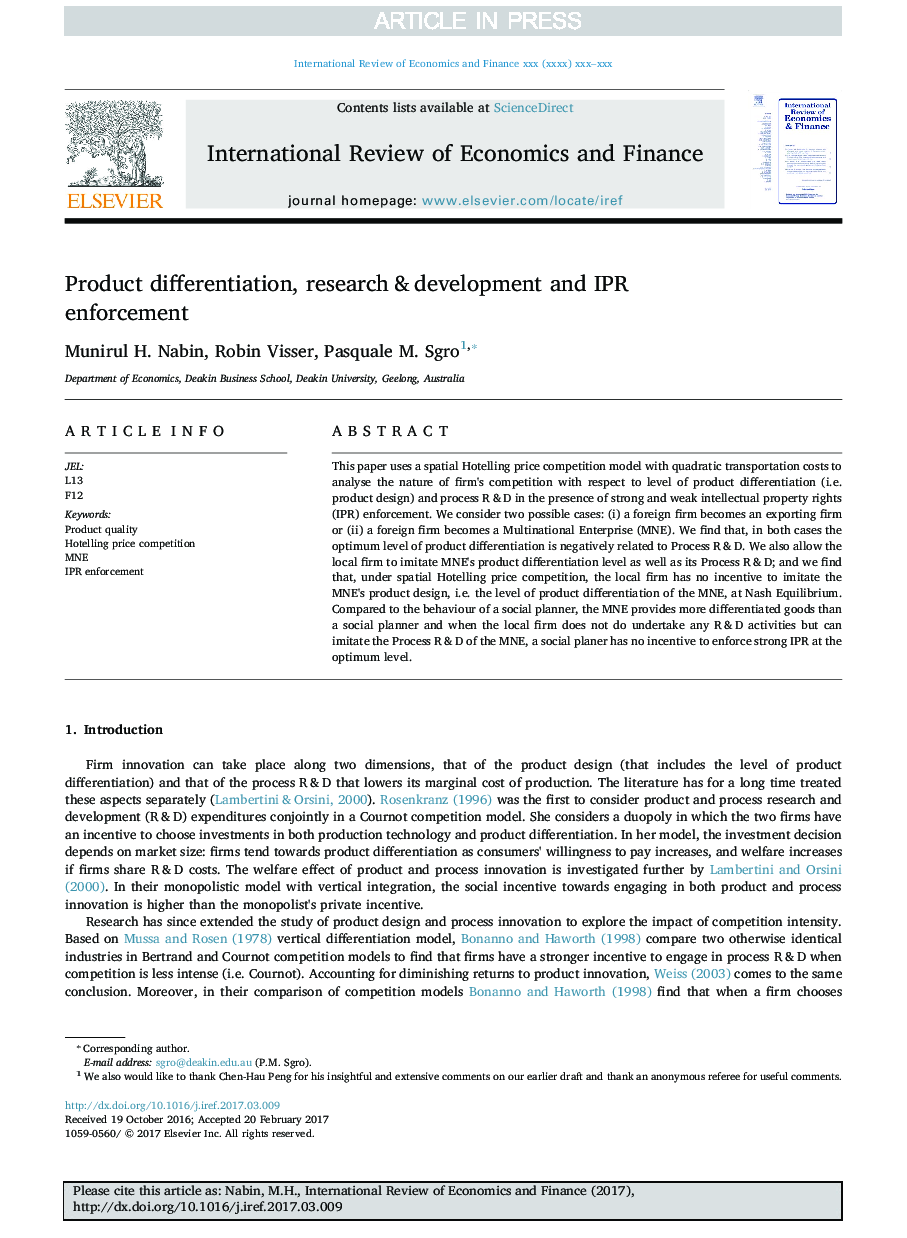| Article ID | Journal | Published Year | Pages | File Type |
|---|---|---|---|---|
| 7355536 | International Review of Economics & Finance | 2017 | 8 Pages |
Abstract
This paper uses a spatial Hotelling price competition model with quadratic transportation costs to analyse the nature of firm's competition with respect to level of product differentiation (i.e. product design) and process R&D in the presence of strong and weak intellectual property rights (IPR) enforcement. We consider two possible cases: (i) a foreign firm becomes an exporting firm or (ii) a foreign firm becomes a Multinational Enterprise (MNE). We find that, in both cases the optimum level of product differentiation is negatively related to Process R&D. We also allow the local firm to imitate MNE's product differentiation level as well as its Process R&D; and we find that, under spatial Hotelling price competition, the local firm has no incentive to imitate the MNE's product design, i.e. the level of product differentiation of the MNE, at Nash Equilibrium. Compared to the behaviour of a social planner, the MNE provides more differentiated goods than a social planner and when the local firm does not do undertake any R&D activities but can imitate the Process R&D of the MNE, a social planer has no incentive to enforce strong IPR at the optimum level.
Keywords
Related Topics
Social Sciences and Humanities
Economics, Econometrics and Finance
Economics and Econometrics
Authors
Munirul H. Nabin, Robin Visser, Pasquale M. Sgro,
